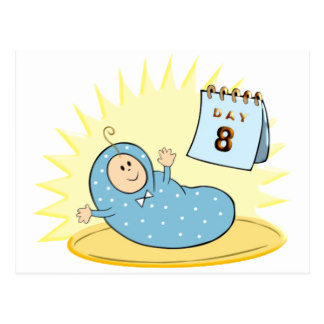Most Jews, myself included, consider a Bris to be an exceptionally joyous occasion, that is beloved by everyone. It is so standard, so normal, that it’s never been in dispute. At least I didn’t think so, until I read an alarmist (contrived and biased?) article from the New York Times that ponders “When Jewish Parents Chose Not to Circumcise.”
Naturally, such a pronouncement would—and has—caused quite a bit of controversy.
Stated reasons why parents take issue with the procedure reads like a laundry list of assorted nonsense: fear of causing pain or “mutilation,” considering it an outmoded custom, and claiming it’s sexist against daughters. The main reason, however, appears to be a strong objection from a non-Jewish spouse.
Based on the title alone, one is led to believe that this issue is being debated within the Jewish community at large. I know, from my own personal experience, that it’s absolutely not. Just to be clear: I have never heard of a single case involving two parents who were both raised Jewish refusing to circumcise their son. (Maybe they’re out there, but it is so far from the norm, it’s barely worth considering.)
Most people, regardless of their religion, consider circumcision to be positive, healthy, and much more aesthetic. Certainly, there are cultural differences, but if given the choice, I think most grown men would not choose to undo it.
It’s interesting to note that the folks interviewed for the article were a single mother and interfaith couples. One of them, a Jewish man, is quoted as saying that the fight over circumcision with his non-Jewish wife was “the hardest thing we’ve ever had to deal with,” and they ended up forgoing it because she was so against it. (It’s quite obvious that had the wife been Jewish, they would have kept the tradition.) He goes on to say: “I didn’t want it to end our marriage and tear apart our family.”
The sad fact is that the odds of such marriages lasting are slim to none, because the husband and wife are so completely opposite. Without a common belief system to the guide the family, it is nearly impossible to thrive. I don’t say any of this because I’m against interfaith couples. I say it because every stat for the past 30 years has proven that when Jews intermarry, the children are rarely raised Jewish and that cycle perpetuates with the grandchildren.
If someone chooses to intermarry—and everyone deserves that choice–they need to go into it with their eyes open. It’s highly unlikely that a non-Jewish spouse will want to raise a child according to Jewish tradition. It may start with a fight over the Bris, which inevitably will lead to a fight over a Baptism, and a Christmas tree, and an Easter Bunny, and so on.
There are certain issues which are so important, no compromise can exist. If a Jewish parent believes circumcision is right because it is the physical manifestation of the Covenant, that argument will not sway someone who doesn’t believe it to begin with.
So, I guess the article should’ve been titled “When Interfaith Couples Choose not to Circumcise.” Of course, that would take a lot of steam out of the hysteria and defeat the purpose…
Throughout history, there have always been Jews that rejected Judaism. (That’s fine; we’re not keeping anyone by force and if they’re unhappy, we have to let them go.) Those of us in the mainstream will continue to circumcise, until the end of time, not because we have to, but because we want to! Because we know, deep in our hearts, without any doubt, that it’s right, it’s good, and it’s the best possible option for every Jewish male.
Readers are welcome to chime in with their opinions.


We adopted a baby boy from Thailand at the age of 3. While we couldn’t have a traditional Bris due to his age, we absolutely had him circumcised as soon as the pediatrician allowed it. I agree that only Interfaith couples would forgo something so vital to Jewish Law and identity.
Oh, now that’s interesting. I didn’t even consider how this would effect an International adoption. Great point.
I wonder how much these situations are affected by which parent is Jewish; you could argue that if the mother isn’t Jewish, the baby isn’t either. In any case, surely this kind of thing should be clarified before the parents marry?
Definitely, a couple should discuss religion and decide before marrying and having a child. The problem is that a lot of people say one thing and then change their mind afterwards. As for the identity of the child, traditionally it’s Jewish mother/Jewish child, but I am willing to accept the other side. The heritage of both parents plays an important role and I won’t discriminate against kids that only have a Jewish Father.